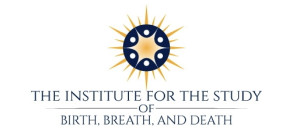One More Breath ~ Just Like That
by Amy Wright Glenn
One more breath ~ just like that.
This statement, more than any other, stayed with me after interviewing Naima Beckles, co-founder of For Your Birth. Upon completing the interview, I wrote it down on a heart shaped piece of paper that my son had cut out for me. It has stayed on my desk ever since. It has brought me peace in troubled moments and reminded me of deep, simple, and real wisdom.
The topic of my interview with Naima was: A View from NYC, What does it mean to give birth during a pandemic? You can listen to the full interview here.
Below is an edited portion of our interview. One that I hope is read by birth professionals everywhere as we navigate the challenges of caring for birthing families during Covid-19. May it remind us all to take “one more breath ~ just like that.”
Thank you dear Naima for your words, wisdom, and love. It was a delight to interview you.
Peace,
Amy
________________
Amy Wright Glenn: Could you talk the listeners through the new landscape of birth in the time of Covid-19. If I’m pregnant, and I’m working with you, what are my options? What could be my plan B or C?
Naima Beckles: Right. So, all of the hospitals public and private have said that one support person can attend the birth with the pregnant person, provided that that person doesn’t have any of the symptoms of the virus. So that’s where we are right now.
Outside of the existence of only two birth centers, New York City holds just really two options for birthing people. It’s birthing in a hospital, private or public, or planning a home birth. And people who birth at home in New York City, they’re in the minority. We’re looking at less than 2% of the population. The vast majority of people who are birthing or birthing in hospitals.
I sometimes think of my job as protecting the heart in the birth process. I spend a lot of time thinking about what are the physical needs of both parents, if there are two parents there ~ but especially that birthing parent. What are the emotional needs?
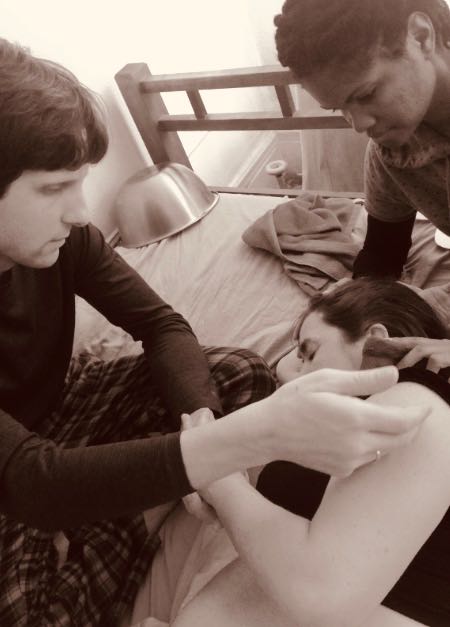 For example, consider this photo of a planned home birth. I’m there with a cool towel on her neck and her partner is holding her hand and providing light touch. You can see the concentration on her face as she’s working through the contraction.
For example, consider this photo of a planned home birth. I’m there with a cool towel on her neck and her partner is holding her hand and providing light touch. You can see the concentration on her face as she’s working through the contraction.
I don’t remember exactly what stage of the labor we were in. But I imagine that she’s doing some hard work. So we’re providing her with comfort, warmth and support.
Amy Wright Glenn: So, how do we take this beautiful comfort and warm support into our hard national crisis? How can we work through, and not bypass, our own fears? How can we hold this type of warmth and support for our fear? It’s as if our nation, in some sense, is going through labor.
How do we work with this intensity? In this contraction of fear, we wonder about the unknown? What will come out of this? What will be? How long will this last? How can the doula energy be a guide, a support? That’s what I think of it late at night.
One creative thing that you shared with me was an approach taken in parts of California where prenatal care is now being provided in makeshift outdoor tents or health centers ~ just like they’re creating extra space for COVID-19 patients in hospital-like tents in New York City parks.
Naima Beckles: I absolutely love this creative solution to a really difficult problem. I came across this small story of an existing freestanding birthing center which had set up tents outside of their birthing centers so that people can get prenatal care from them in their tents, rather than going into the hospitals for their prenatal care.
And what makes this possible is laws in California aren’t as restrictive as they are here with regard to establishing accrediting birthing centers. So an existing outfit can do this. We don’t have this in New York. So if we were to have something like this, it would be all on the shoulders of the one birthing center that’s in New York City. And that’s too much to ask and demand.
So a lot of our prenatal care, not all of it, but a lot of it happens in the hospital. This is true even for people while they’re laboring. Lots of people are arriving to the hospitals well before it’s time to actually deliver that baby. If they had a tent space that’s outdoor that’s in Central Park that’s across the street from hospital in case they needed emergency or urgent care. Then, we just have more options, more flexibility.
Amy Wright Glenn: Right. And that’s what we need in these times ~ creativity, flexibility.
Naima Beckles: Right.
Amy Wright Glenn: And then there’s the question of home birth even if it is an option, that only 2% pre-COVID were using. If I were pregnant in NYC at this time, I imagine I’d be wondering: Do I want to consider having a home birth? Do I want more than one support person with me? So tell me about how this looks for the families you’re supporting, who are considering home birth for the first time.
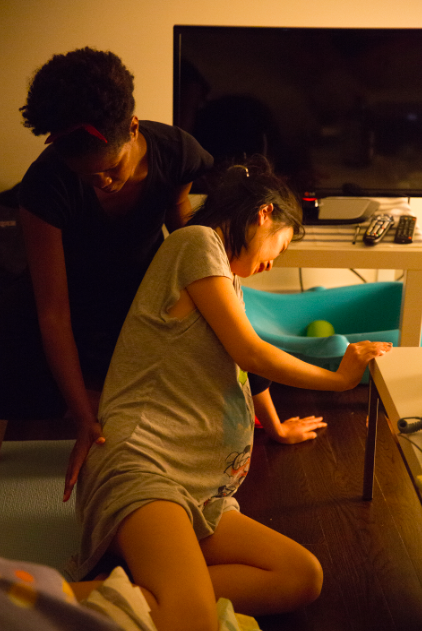 Naima Beckles: I have had a home birth conversation with nearly every one of my clients that I’ve had in the past three or four weeks. These are people who aren’t just my doula clients, they’re my teaching clients. It’s never happened before that people have been so interested. Pre-Covid, on average, I would have a home birth conversation or meet people who are intending to birth at home, about three times a year. And in the last week, I’ve had a huge increase in the number of people who have scheduled time to meet online to have a discussion about the possibilities of home birth. I’ve had maybe eight or nine conversations in a single week. I can only imagine what it’s like to be a home birth midwife right now in New York City, getting inundated with so many questions about home birth. Can I do this? Is it available to me? Are you available to me?
Naima Beckles: I have had a home birth conversation with nearly every one of my clients that I’ve had in the past three or four weeks. These are people who aren’t just my doula clients, they’re my teaching clients. It’s never happened before that people have been so interested. Pre-Covid, on average, I would have a home birth conversation or meet people who are intending to birth at home, about three times a year. And in the last week, I’ve had a huge increase in the number of people who have scheduled time to meet online to have a discussion about the possibilities of home birth. I’ve had maybe eight or nine conversations in a single week. I can only imagine what it’s like to be a home birth midwife right now in New York City, getting inundated with so many questions about home birth. Can I do this? Is it available to me? Are you available to me?
Amy Wright Glenn: There are not enough midwives to meet this increase in demand.
Naima Beckles: No, not at all.
Amy Wright Glenn: So many things shifting and I want to pause and say thank you, Naima . Thank you for your leadership in New York City right now. When I think of New York City, there’s a place in me that takes a deep breath and feels a release knowing: “She’s there.” This is because you have a steady heart and a clear mind. As you doula families through their options ~ and you doula your family through this time ~ you also practice self care. Can you share some thoughts on what is it like to care for self? Thoughts for all the doulas and healers who are listening to this. How do we keep our own light strong in this ever shifting landscape of such big change?
Naima Beckles: This crisis is like a contraction and our whole globe is in labor right now.
When I was in labor with my second son, one thing that my midwife said to me again and again, was: “One more breath, just like that.”
I believed her so intensely. I really thought, “Okay, one more, just like that, and I can do it.” She said that to me for hours, and every time I believed her. “Yes, I can do one more, just like that.”
I want to offer this statement to everyone listening.
“One more breath, just like that” is how we will persevere through this and it is how we can simultaneously take care of ourselves.
Amy Wright Glenn: Thank you. I needed to hear that today. Through my meditation practice, I strive to feel the power of that one breath, one day at a time, one breath just like that. Thank you. Thank you.
I love how your teaching continues, even if it’s not in a person-to-person forum right now. I think of all the people you work with who bravely continue their teaching, continue their work, even with this situation. Tell me about how your colleagues in New York are connecting and supporting each other through this.
Naima Beckles: Well, this picture is of our current team at For Your Birth. Not everyone is pictured here, but most of us are in here. And this was taken at a training led by one of our doulas named Charlie who is wearing all white, pictured on the right.
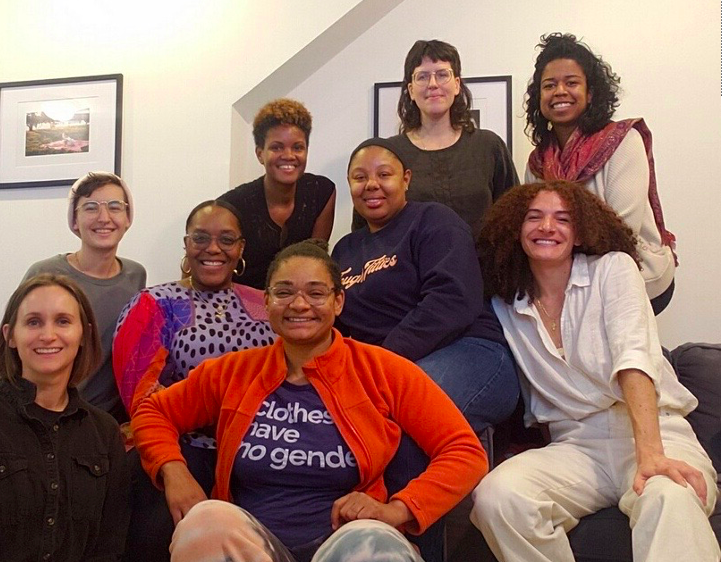 Charlie led us through a training on re-framing reproductive care for trans people. Charlie identifies as a trans person and is a phenomenal doula and educator.
Charlie led us through a training on re-framing reproductive care for trans people. Charlie identifies as a trans person and is a phenomenal doula and educator.
A central tenet of our work is to regard all doula support as being trauma informed care. This way, we are always thinking about the most vulnerable people.
The most vulnerable people are the people with the least amount of access. That can be people of color, people who are poor, people without access to medical system, and certainly people with transgender identities. Some people have all those identities intersecting at different places.
It was a full six hour training really hearing about the experiences of so many people and re-shifting how we provide care.
Amy Wright Glenn: That’s so powerful. I love how you frame all doula work as being trauma informed care wherein we are called to think deeply and consider the needs of the people who are most vulnerable. Let us do that with this crisis too ~ on every level. We must consider, who are the most vulnerable? That’s the work.
Naima Beckles: That’s the work. Charlie and I had a conversation about that this week. Yes, that’s exactly the work ~ and it’s going to be the work for a very long time, It’s not only in this immediate crisis, because they’re going to be repercussions that go on for a very long.
Amy Wright Glenn: Right. And along the way, we take “one more breath, just like that.” I hope those listening are inspired to reach out to Naima or Charlie and learn more about trainings that are trauma informed so we can apply insights to whatever profession we’re in. Whether we’re teaching kids, working as therapists, or teaching yoga… on every level we can integrate this lens of sensitivity and awareness.
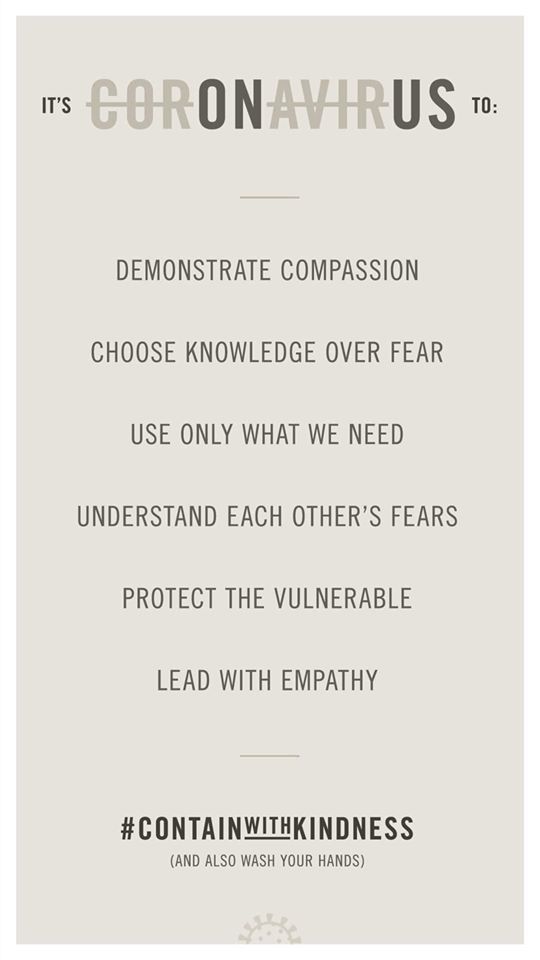 Naima Beckles: There’s the quote that I keep coming back to that I heard a week ago on a radio show focusing on Covid-19. The quote is: “It’s during a crisis that we see our reality more clearly.” Right now in New York City, I am certainly seeing lots of different realities more clearly. One being that all doula work is trauma informed care. That’s the reality and it’s much more crystallized for me now.
Naima Beckles: There’s the quote that I keep coming back to that I heard a week ago on a radio show focusing on Covid-19. The quote is: “It’s during a crisis that we see our reality more clearly.” Right now in New York City, I am certainly seeing lots of different realities more clearly. One being that all doula work is trauma informed care. That’s the reality and it’s much more crystallized for me now.
Amy Wright Glenn: Yes. For myself, I’ve been reflecting upon how easy it is to get caught up in busyness. Many insights have come through slowing everything down. I’m getting outside with my son and throwing the football every day. We play so many games ~ pretending we’re in Narnia and we do lots of art/cooking. Even as I find time for emails and work, we are just slowing everything way down. Through this process, it does become clearer to me how precious each moment is.
Naima Beckles: Yes.
Amy Wright Glenn: Thank you very much for your time. You represent so much of the “contain with kindness” work where in we strive to demonstrate compassion, choose knowledge over fear, use only what we need, understand each other’s fears, protect the vulnerable, and lead with empathy.
Naima Beckles: Yes.
Amy Wright Glenn:That’s for sure.
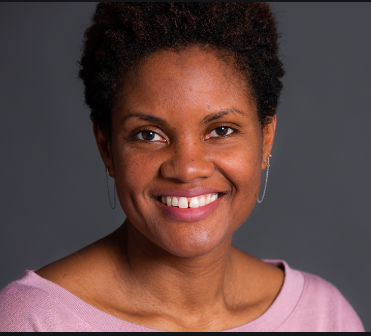
Naima Beckles is the co-founder and director of For Your Birth, a NYC-based center supporting birthing and breastfeeding families. For Your Birth is an intentionally diverse group of educators and doulas whose support services reach all families throughout the metro area. Beckles is a birth and postpartum doula, a Lamaze International childbirth educator, and a certified breast-feeding counselor. She earned her bachelor’s degree in English literature and a master’s degree in secondary education and teaching from Loyola Marymount University. She taught middle school for 8-years before transitioning into birth work following the birth of her sons. Beckles has been a consultant to two citywide initiatives whose goals were to better support the health of birthing families, and most recently she presented at the inaugural Evidence Based Birth® conference in Kentucky.
